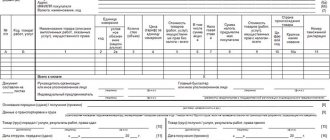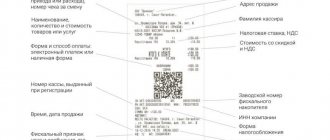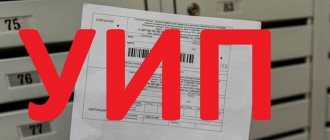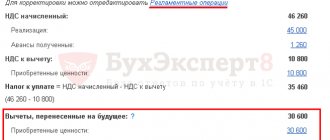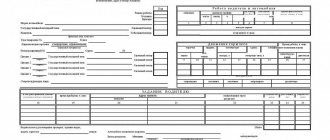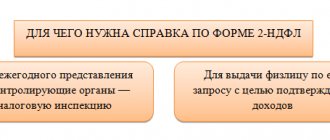Legal norms
Heads of employing organizations should understand what to prepare for during inspections by the State Labor Inspectorate (SLI), what rights and responsibilities SLI inspectors have, based on the following legislative acts:
- Labor Code of the Russian Federation (especially articles 353 and 356).
- Code of the Russian Federation on Administrative Offences.
- Federal Law No. 294-FZ of December 26, 2008, taking into account the amendments made to it by Law No. 277-FZ of July 3, 2016.
- By-laws, in particular, Decrees of the Government of the Russian Federation No. 875 of 09/01/2012, No. 177 of 02/13/2017, No. 1080 of 09/08/2017 and Order of the Ministry of Labor No. 354n of 10/30/2012.
What to pay attention to before checking
Special assessment of working conditions (SOUT)
It must be carried out by all employers, including individual entrepreneurs, for all employees, except for homeworkers and remote workers.
Send the SOUT results to the labor inspectorate and post them on your website. Familiarize each employee with a workplace certification card against signature, including when hiring. Specify the class of working conditions determined based on the results of the special labor assessment in the employment contract.
Occupational Safety and Health
Assign responsibility for labor protection to one of the organization's employees. If there are more than 50 people on staff, enter the position of occupational safety specialist or occupational safety service. In this case, responsible persons must have the necessary education.
Send at least three specialists to an accredited organization to test their knowledge of labor protection, then form a commission from them that will train and test the rest of the employees. If it is not possible to create an internal commission, then subsequent training for the remaining employees will have to be carried out in an accredited organization. When hiring any employee, regardless of his profession, conduct a briefing on labor protection and make an entry with the employee’s signature in the introductory briefing log.
In 2022, new labor protection rules came into force. In this regard, conduct an extraordinary test of knowledge of new regulations. Document the training in a protocol, and enter information about the re-inspection into the employees’ certificates.
Employment contract
Obtain the employee’s signature on your copy of the employment contract indicating that he was given a copy. Make sure that the contract contains the required information: last name, first name, patronymic and passport details of the employee, name, TIN of the employer, last name, first name, patronymic, position of the employer’s representative and the basis of his authority. Indicate the place and date of conclusion of the employment contract.
Include the mandatory conditions in the contract: place of work, job function, start date of work, payment terms, work and rest schedule, working conditions in the workplace based on the SOUT, guarantees and compensation, the condition of compulsory social insurance of the employee.
All changes to the mandatory terms of the employment contract must be formalized in an additional agreement to the contract.
Civil contract
Make sure that the GPC agreements do not contain any signs of employment contracts. If it says that the work is carried out according to the operating mode of the organization, instead of the measured volume of work, the labor function is described, the same work is performed month after month, the terms of payment under the contract coincide with payments to full-time employees - the contract can be reclassified as an employment contract.
Recruitment
Obtain the employee's signature on the acceptance order. If the employment contract is fixed-term, indicate the expiration date in the order. Familiarize the employee with the collective agreement (if any), internal labor regulations, job descriptions and other local regulations against signature. Receive an application on the method of salary payment with bank details, an application to join a corporate banking product. Familiarize yourself with the SOUT map. Conduct initial training on labor protection.
Dismissal
Obtain the employee's signature on the dismissal order. Make sure that the resignation letter is dated 14 days before the dismissal order is issued. Calculate compensation for unused vacation and wages for hours worked, pay them on the day of dismissal. Issue a work record book on the day of dismissal, get the employee’s signature in the work record book.
Annual paid vacation
Two weeks before the start of the calendar year, approve the vacation schedule and familiarize employees with it against signature. Set at least one part of your vacation to be at least 14 days long. Notify the employee two weeks in advance, against signature, of the upcoming vacation.
Calculate vacation pay based on average earnings, taking into account indexation if there was an increase in wages. Pay for your vacation no later than 3 days before it starts. Obtain the employee's written consent to postpone the vacation to another time. Make sure that there are no employees who have not taken a vacation for two years in a row.
Pay slips
Approve the form of the pay slip by order. Give slips to employees in printed or electronic form, confirm their receipt with the employee’s signature in the issue register or in another way.
Wage
Pay your salary at least every six months. The specific date of payment is established by internal labor regulations, collective or labor agreement. The date must not be later than 15 calendar days from the end of the period for which the salary was accrued.
Do not set wages below the minimum wage. Regions have the right to set their own minimum wage, which may be higher, but cannot be lower than the federal one. In such cases, the employer is obliged to pay employees no less than the regional minimum wage. Find out what minimum wage is in effect in your region.
Set in the wage regulations the period and frequency of wage indexation. It is advisable to conduct it at least once a year in January and index it no less than the officially published inflation percentage. Conduct such indexing in a timely manner.
Grounds for supervisory activities
To understand the reasons for the State Labor Inspectorate’s interest in the work of an organization, one should remember what labor inspections are, namely: scheduled and unscheduled.
Reasons for planned control:
- 3 years have already passed since the registration of the organization or the announcement of the start of its activities.
- The previous scheduled control took place more than 3 years ago.
Reasons for an unscheduled visit by an inspector:
- Expiration of the deadline for fulfilling the order based on the results of the previous visit.
- Order of the prosecutor's office, government.
- Appeals to the State Labor Inspectorate regarding violations of labor legislation in the organization (delays in salary payments, wages below the minimum wage, non-compliance with safety regulations and other legal rights of workers).
- A complaint sent to the State Tax Inspectorate by a current or already dismissed employee of an organization regarding a violation of his rights.
How often do scheduled inspections occur?
They are carried out every 3 years, and their schedule for the current year is approved no later than December of the previous year. The schedule is published on the websites of Rostrud and the Prosecutor General's Office of the Russian Federation. This frequency answers the question for what period the labor inspectorate checks - for the last 3 years.
From 01/01/2016, “supervisory holidays” were introduced for a period of 3 years - a moratorium on carrying out planned non-tax supervisory activities of small businesses. By Law No. 480-FZ of December 25, 2018, they were extended for 2022 and 2022. Organizations classified by Article 4 of Law No. 209-FZ of July 24, 2007 as small businesses will not face a scheduled inspection by the labor inspectorate in 2020. Exceptions: this moratorium does not apply to companies whose type of work is related to social services, healthcare, education, heat supply, electricity (Article No. 21.5 of Law No. 294-FZ), and areas of activity in which a risk-based approach has been introduced. A complete list of such exceptions is given in Art. 1 of Law No. 480-FZ.
In addition, the moratorium does not apply to an organization that has committed gross violations or lost any license for three years.
An employee’s complaint as a basis for unscheduled control
Employee complaints are the most common reason for unscheduled HIT inspections. Employers should know the following:
- Art. 360 of the Labor Code of the Russian Federation does not directly provide for a complaint from a former employee as a basis for inspection. But the code does not know such a thing as a “former employee” at all, and does not separate the rights of current and former employees to protect their interests. Therefore, an inspection carried out at the request of a dismissed employee is legitimate.
- If the employee who filed the complaint wished to remain anonymous, GIT inspectors do not have the right to familiarize the employer with its contents, or provide the person’s full name. this employee (Part 2 of Article 358 of the Labor Code of the Russian Federation). At the same time, inspectors are obliged to report on the subject, goals and objectives of the inspection, and its basis.
- An employee’s withdrawal of a complaint is not grounds for termination of an inspection (if at the time of filing there was a violation of his rights), since labor relations are of a private-public nature. Prompt elimination of violations by the employer may be taken into account when imposing an administrative penalty as a mitigating circumstance.
How long do checks take?
The duration of the State Labor Inspectorate inspection is regulated, and the maximum period for a scheduled inspection of labor inspectors depends on the type of organization being inspected:
- company with branches - up to 2 months;
- small business company - up to 5 hours;
- microenterprise - up to 15 hours;
- all other organizations - up to 20 days.
The answer to the question of what is the maximum period for an unscheduled labor inspection in the cases of micro-enterprises and small businesses is given - they are limited to a total period of 20 days.
Duration of inspections
If verification takes too long, it hurts business. To protect enterprises from losses due to the sluggishness of inspection authorities, legislation has introduced restrictions. Now the inspection cannot last more than 20 working days (Article 13 No. 294 of the Federal Law). Small businesses can be inspected for no more than 50 hours per year. For micro-enterprises there is a limit of 15 hours per year.
For enterprises with branches in several constituent entities of the Russian Federation, the law establishes an inspection period of no more than 60 working days (clauses 24 and 62 of the Regulations and part 4 of Article 13 No. 294-FZ).
If the inspection requires lengthy investigations, examinations and tests, the period for its completion can be increased by no more than 2 times (clause 24 of the Regulations). Unscheduled inspections cannot last more than 20 days (clause 107 of the Regulations).
How checks happen
The law defines the sequence of actions of inspectors:
- Notifying the organization about the upcoming visit.
- Request for documents of interest to the GIT inspector with a possible subsequent visit of the inspector to the organization being inspected.
- Drawing up a report on the results.
- Issuing instructions based on the results.
Planned
The GIT inspector is obliged to notify the organization no later than 3 days before the start date of the scheduled inspection, which can be:
- Documentary - the inspector requests certified copies of the documents he is interested in, which must be provided to him within 10 working days after the request, and studies them at his workplace.
- Traveling - the inspector travels to the location of the organization and there gets acquainted with the documents related to the subject of inspection. He must present his identification and an order to conduct an inspection. The deadline for providing documents is not regulated, but the inspector has the right to demand immediate access to them. If there is a large volume of requested documents, you must notify the inspector in writing and request additional time to collect them.
Unscheduled
The GIT inspector is obliged to notify the organization no later than 24 hours before the start of an unscheduled inspection. However, if it is carried out on the basis of a complaint from an employee of the organization about the employer’s violation of his labor rights or the requirements of labor legislation, which led to a threat to the life and health of employees, then according to Part 9 of Art. 360 of the Labor Code of the Russian Federation, notification of the employer about a planned visit by inspectors is not allowed. The facts stated in the application are what the labor inspectorate checks based on the employee’s complaint - and nothing more that goes beyond this framework.
GIT inspectors do not have the right to demand:
- seizure of original documents;
- notarization of requested documents;
- documents not related to the subject of control;
- during an unscheduled inspection based on an employee’s complaint - documents that are not related to this employee. However, the powers of the labor inspectorate when checking a complaint of this kind allow you to request documents for the entire period of operation of the organization, and not, as in other cases, only for the last 3 years.
GIT checks
Expert consultation
In the summer of 2022, important changes took place in the field of supervisory activities. Federal Law No. 248-FZ came into force, on the basis of which Regulation No. 1230 was approved, which is one of the fundamental regulations in the field of labor supervision. Our expert Viktor Bocheev spoke in more detail about what has changed in the supervisory activities of the State Tax Inspectorate.
***
In the summer of 2022, important changes took place in the field of supervisory activities. Federal Law No. 248-FZ dated July 31, 2020 “On state control (supervision) and municipal control in the Russian Federation” came into force. On the basis of Law No. 248-FZ, it was approved by Decree of the Government of the Russian Federation of July 21, 2021 No. 1230 “Regulations on federal state control (supervision) over compliance with labor legislation and other regulatory legal acts containing labor law norms.” This Regulation No. 1230 is one of the fundamental regulations in the field of labor supervision.
Control and supervision of employers' compliance with the requirements of labor legislation is carried out by the Federal Labor Inspectorate (Part 1 of Article 353 of the Labor Code of the Russian Federation). The Federal Labor Inspectorate is a single centralized system consisting of the Federal Service for Labor and Employment (Rostrud) and its territorial bodies (state labor inspectorates, hereinafter referred to as GIT).
With the help of the ConsultantPlus legal reference system, you can confidently interact with supervisory authorities, state and municipal authorities.
Scheduled checks
GIT inspections can be either scheduled or unscheduled. The State Labor Inspectorate carries out labor supervision in the form of the following control measures:
- on-site inspection;
- documentary check;
- inspection visit or raid inspection.
Planned control, that is, a planned labor inspection, is carried out only in the form of an on-site inspection. The basis for conducting a planned labor inspection is the inclusion of the employer in the plan for conducting planned control activities for the next calendar year, agreed upon with the prosecutor's office. The plan is posted on the official website of Rostrud during December of the year preceding the inspection.
The frequency with which GIT inspectors can come to the employer for a scheduled inspection, as well as the frequency with which the employer can be included in the inspection plan, depends on the risk category that Rostrud has assigned to the employer. This approach was called risk-based. The employer is assigned one of five risk categories:
- high risk - inspection is carried out once every 2 years;
- significant risk - inspection is carried out once every 3 years;
- medium risk - inspection is carried out once every 5 years;
- moderate risk - inspection is carried out once every 6 years;
- Scheduled labor inspections are not carried out for employers assigned a low risk category.
Employers are assigned to a certain risk category based on the criteria set out in the appendix to Regulation No. 1230. The criteria are several indicators that are calculated using formulas. Some of the factors influencing the calculation of the risk category are:
- average number of employees;
- type of activity of the employer;
- cases of bringing an employer to administrative liability for violation of labor laws over the previous three years;
- information about injuries and their severity over the previous three years;
- information about wage arrears for the last year.
Information about employers with the risk category assigned to them is posted on the official website of the Federal Service for Labor and Employment (in relation to the high risk category) and the official websites of its territorial bodies represented by the State Labor Inspectorate (in relation to the categories of significant, medium and moderate risk). If the employer is not classified as a specific risk category, he is considered to be classified as low risk.
In the absence of fatal accidents (for three years preceding the current year), severe injuries (for the year preceding the current year), the fact that wages were not paid on time (for the year preceding the current year) and entered into legal force resolutions in the case of administrative offenses provided for in Parts 1, 3, 4 and 6 of Art. 5.27 and part 1 - 4 art. 5.27.1 of the Code of Administrative Offenses, issued for the year preceding the current year, the risk category assigned to the employer’s activities is subject to reduction to the next risk category. The decision to reduce the risk category is made in the absence of all specified cases and no more than once a year.
The State Inspectorate is obliged to notify the employer of the scheduled on-site inspection by sending a copy of the decision to conduct the on-site inspection no later than 24 hours before it begins.
The subject of the scheduled inspection is compliance by employers with the requirements of labor legislation. The period that can be covered by a labor audit is not limited by law. During the on-site inspection, the following control actions can be performed: inspection; survey; receiving written explanations; requesting documents; expertise.
The period for conducting an on-site inspection is set within 10 working days. However, in relation to small businesses, the total period of interaction during an on-site inspection cannot exceed 50 hours for a small enterprise and 15 hours for a micro-enterprise. The period for an on-site inspection of an employer operating in the territories of several constituent entities of the Russian Federation is established separately for each branch, representative office or separate structural unit of the organization or production facility.
Unscheduled control
Unscheduled control can be carried out both in the form of an on-site inspection and a documentary one, as well as in the form of an inspection visit or on-site inspection. It is important to note that such activities (documentary checks, raid inspections and inspection visits) can only be carried out within the framework of unscheduled control.
The grounds for conducting an unscheduled inspection of the GIT are as follows:
- availability of information from the State Labor Inspectorate about the employer’s violation of the requirements or about the threat of violation of the mandatory requirements of labor legislation (messages and statements from employees, other citizens, legal entities and individual entrepreneurs, authorities, the media, etc.);
- instructions from the President of the Russian Federation or the Government of the Russian Federation to carry out control measures in relation to specific employers;
- the prosecutor's request to conduct a control measure within the framework of supervision over the implementation of laws, observance of human and civil rights and freedoms based on materials and appeals received by the prosecutor's office;
- expiration of the deadline for fulfilling the order to eliminate the identified violation of mandatory requirements.
The procedure for conducting an unscheduled inspection of GIT depends on the type of control event in which the inspection is carried out.
The State Tax Inspectorate notifies the employer of the conduct of an on-site unscheduled inspection by sending a copy of the decision to conduct an on-site inspection no later than 24 hours before its start, except for the cases specified in Part 12 of Art. 66 of Law No. 248-FZ. Also, an unscheduled on-site inspection is carried out only in agreement with the prosecutor’s office, except in cases where it is carried out in accordance with paragraphs 3 - 6 of Part 1 of Art. 57 and part 12 art. 66 of Law No. 248-FZ.
Documentary verification
Documentary verification is carried out in accordance with the provisions of Art. 72 of Law No. 248-FZ and without agreement with the prosecutor’s office. During the documentary check, the following control (supervisory) actions can be performed:
- receiving written explanations;
- requesting documents;
- expertise.
The documentary check is carried out taking into account the requirements of the legislation on secrets protected by law.
The period for conducting a documentary check cannot exceed 10 working days. The specified period does not include the period from the moment the Federal Service for Labor and Employment or its territorial body sends a request to the controlled person to submit the documents necessary for consideration during a documentary check until the moment the documents specified in the request are submitted, as well as the period from the moment the State Labor Inspectorate sends information to the employer about the identification errors or contradictions in the documents submitted by the employer or the discrepancy between the information contained in these documents and the information contained in the documents available in the GIT, and the requirement to provide the necessary explanations in writing before the submission of these explanations to the GIT.
Inspection visit
An inspection visit is understood as an event carried out through the interaction of the State Inspectorate with a specific employer at the location (activity) of the controlled person (its branches, representative offices, separate structural units) or the object of control.
The inspection visit is carried out without prior notice to the employer.
During the inspection visit, inspectors can perform the following control actions: inspection; survey; receiving written explanations; requesting documents that, in accordance with mandatory requirements, must be available to the employer.
The duration of an inspection visit at one place of activity or at one production facility (territory) cannot exceed one working day.
Raid inspection
A raid inspection is carried out in relation to employers operating at facilities owned, used or managed by another employer, in accordance with the provisions of Art. 71 of Law No. 248-FZ. During the raid inspection, the following control actions can be performed: inspection; survey; receiving written explanations; requesting documents; expertise.
The period of interaction with one employer during the raid inspection cannot exceed one working day.
A raid inspection can only be carried out in agreement with the prosecutor's office, except in cases where it is carried out in accordance with paragraphs 3 - 6 of Part 1 of Art. 57 and part 12 art. 66 of Law No. 248-FZ.
Upon completion of any control activity, a report is drawn up. Decisions made based on the results of a control measure carried out in gross violation of the requirements for the organization and implementation of state control are subject to cancellation by the control body that conducted the inspection, or by a higher supervisory body or court, including on the proposal of the prosecutor.
Gross violations of the requirements for the inspection procedure are:
- lack of grounds for conducting a supervisory action;
- lack of coordination of the inspection with the prosecutor's office if it is mandatory;
- violation of the requirement to notify of an inspection if notification is mandatory;
- violation of the frequency of scheduled inspections;
- conducting a routine audit of an employer not included in the plan; making a decision based on the results of the inspection based on an assessment of compliance with the provisions of regulations that are not mandatory; involvement in the inspection of persons whose participation is not provided for by Law No. 248-FZ;
- violation of inspection deadlines;
- performing actions during the inspection that are not provided for such a control event;
- failure to provide the employer with a document containing the results of the inspection for review.
A closed list of gross violations is enshrined in Part 2 of Art. 91 of Law No. 248-FZ.
Previously, we talked about whether it is possible to monitor workers using video cameras and software.
Thus, the procedure for conducting a labor inspection of the State Labor Inspectorate depends on the type of control measure through which the inspection is carried out.
Let me remind you that such unique analytical materials of SPS ConsultantPlus, such as ready-made solutions and a guide to personnel issues, will provide you with serious support in resolving non-standard complex controversial situations.
The conclusions of ready-made decisions and a guide to personnel issues take into account the norms of current legislation, current established judicial practice and official explanations from authorities.
Guide to HR issues. Checking the activities of the organization. Mandatory documents {ConsultantPlus}
Ready-made solution: How scheduled inspections of organizations are carried out (control (supervisory) activities) (ConsultantPlus, 2021) {ConsultantPlus}
Ready-made solution: How unscheduled inspections of an organization are carried out (control (supervisory) activities) (ConsultantPlus, 2021) {ConsultantPlus}
Viktor Bocheev, legal consultant at “What to do Consult” LLC
On reform in the field of supervision and control of labor relations, as well as other relevant topics - at the seminar of expert V. I. Andreeva.
Documents that are of interest to inspectors
- Employment contracts with employees, their work books, applications and their other documents and issued certificates.
- Staffing schedule, personnel orders, time logs, vacation schedules.
- Sick leave certificates, medical examination data.
- All accounting documents for any payments to employees.
- Internal regulations, regulations on certifications, data protection, information and trade secrets.
- Documents on labor protection.
- Documentary evidence that employees are familiar with all documents of the organization related to them.
When carrying out control activities, GIT inspectors use checklists - they can be studied in their entirety in the article “Prepare for an inspection using GIT checklists on personnel issues”
On-site inspections. Rights and responsibilities of state labor inspectors
On-site control activities begin with the inspectors presenting their official IDs and a copy of the order to conduct the inspection (Part 4 of Article 12 of Law 294-FZ). The latter is handed over to the representative of the organization against receipt.
The rights of GIT inspectors are enshrined in Art. 357 Labor Code of the Russian Federation. They can:
- be present on the territory of the enterprise at any time of the day;
- demand documents related to the subject of inspection, other information;
- take explanations from a representative of the enterprise;
- carry out the withdrawal of substances and materials used at the enterprise, etc.
There are no restrictions on the time inspectors can stay at the enterprise during the inspection period. Although the legislation of the Russian Federation does not directly talk about this, according to Art. 12 of the ILO Convention “On Labor Inspection...” of July 11, 1947 No. 81, inspectors can talk with company employees. From Part 6 of Art. 12 of Law 294-FZ it follows that experts who have no relationship with the organization being inspected may be involved in the inspection.
IMPORTANT! GIT inspectors do not have the right to seize original documents. They can only request copies certified by a representative of the enterprise. These copies, regardless of volume, are provided free of charge.
At the same time, inspectors must strictly follow the legislation of the Russian Federation (Article 358 of the Labor Code of the Russian Federation) and not go beyond the limits established by Art. 15 of Law 294-FZ. For example, they do not have the right to demand documents that are not related to the subject of the inspection, and documents that are at the disposal of other state or local authorities.
Check results
Based on the results of the GIT inspection, a report is drawn up in 2 copies (for the GIT and for the organization being inspected). The form of the act was approved by the Ministry of Economic Development. The report is drawn up immediately after the end of the event, but the inspector has the right to issue this report within a maximum of 3 working days. If violations are identified, an order to eliminate them is attached to the report, indicating the deadline for execution. In cases where the violations are serious or the deadlines for fulfilling the issued order are violated, the GIT inspector draws up a protocol on the administrative violation and a resolution imposing an administrative penalty in the form of a fine. The employer has the right to immediately find out the results of the labor inspection, after which he has 15 days to submit his objections to a higher official of the State Labor Inspectorate or 10 days to appeal in court.
Reasons for inspections
The most common complaint is from your own employees. More calls can come from the prosecutor's office, police, tax office, foundations, and even from job sites. For example, when one of the conditions of employment is Moscow registration.
According to the labor inspectorate portal, more than half of the complaints relate specifically to wages. That is, workers are ready to tolerate violations of their labor rights and make compromises with the employer as long as money is not involved.
However, the labor inspectorate does not accept anonymous applications. You need to come with a complaint in person or leave it on the website by registering through the government services portal.
Interesting fact 1: not only the employee whose rights are violated can complain about you, but also his colleague.
Interesting fact 2: you should not be told the name of the employee who complained about you, nor should you be shown the text of his complaint.

